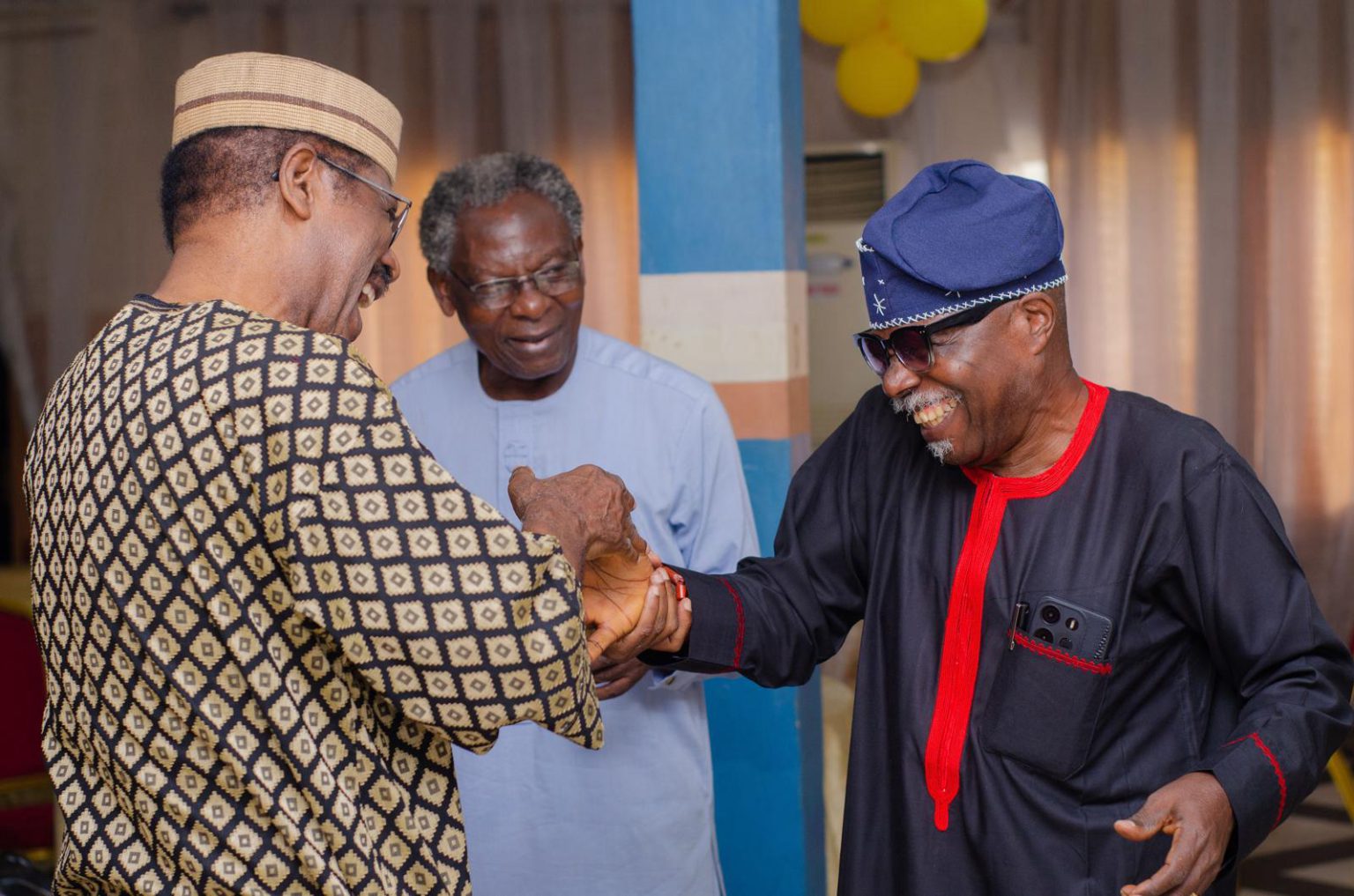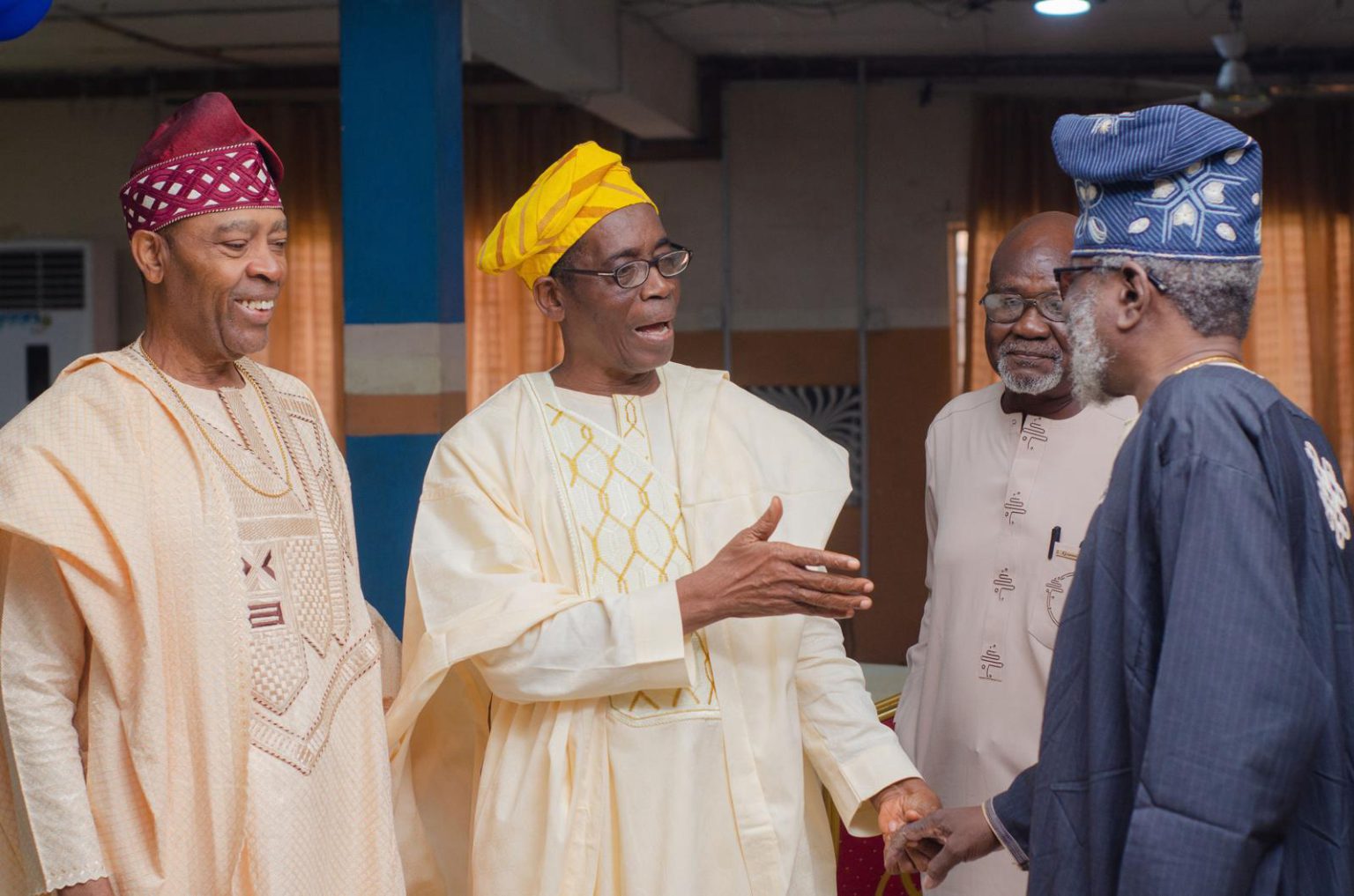On Saturday, May 10, 2025, the 1963-67 set of Ogbomoso Grammar School (aka Paku), gahtered at the MAN Centre, Wemabod Estate, Ikeja to unveil a book about thier secondary school days. It was a convivial event where many who met last over five decades ago renewed their ties and and went down memory lane. A book of chronicling their memories MEMOIRS OF OUR HIGH SCHOOL DAYS 1963-67 SET OF OGBOMOSO GRAMMAR SCHOOL was launched.
The chief launcher was Prof Femi Adelowo, who is also an old student of the prestigious Ogbomoso Grammar School. The book was reviewed by Dr. Olayinka Oyegbile, a jornalist, writer and media scholar and author of HOME AWAY FROM HOME: HISTORY OF OGBOMOSO PEOPLE IN JOS.
The review is published below:
By Olayinka Oyegbile, PhD
I will like to start this review with a quote from the charismatic and one of the most glamorous former American Presidents, the late President John F. Kennedy. Reflecting on the importance of old students’ associations or alumni associations, he said, “I think the success of any school can be measured by the contribution the alumni make to our national life.”
Hinging my review of this 154 pages book I want to say that old students’ associations are the tonic with which friendships and life long relationships are built. Most of the students who come together at this stage of their lives are still growing and very impressionable. Therefore, the connections, relationships built at this stage last forever and longer than those made in later life. This is because at this stage characters, impressions and memories are being formed and these cast long shadows that are hardly erased.
The association emphasise the importance of involvement in the uplifting of institutions that gave them the lift and positive impact in life. However, what we are doing to today is to examine the contributions of a particular set to the growth and development of their school. This is a class and not a whole association. They have come together to proclaim their set as the Pacesetter and Best Class Ever. Who wants to dispute that?
It is perhaps not a coincidence that the very year this set was admitted was the same year the late President Kennedy was shot on the streets of Dallas, Texas in the United States. It is also the quote of the man I am using to kickstart this review. Prof Kunle Enigbokan who wrote the Forward to the book made the reference to the assassination of President Kennedy.
Maybe it was his mercurial touch that spread from the US to the class of 1963-67 that made them to excel! The answer is in the womb of time.
This class of 1963-1967 has opened a new vista in old students’ associations’ history in Nigeria. They have shown that following the old adage that twenty children cannot play together for twenty years, but they can remain bonded in friendship and contacts for more than twenty years,
In the beginning of the book they gave the readers the opportunity to know more about the founding principal of the school by giving his bio data and achievements. This is commendable. They also gave a profile of the present principal of the school who happens to also be a product of the school!
To demonstrate how closely-knit the students are despite the long years after they left their alma mater, they have the admission list and number of every student. This is commendable and shows the devotion to details. Not only that, picture of almost all the students as they were at perhaps the admission stage were also published. I salute the record keeping ability of the school authority or whoever was responsible for this.
The profile of each old student in this book is also a very resourceful output that makes the readers know that although these men may have parted some fifty eight years ago as classmates, they are still in touch with one another. This is a feat that many classmates, old students and alumni associations need to learn from. Not only that they also pay tributes to some of them who have departed this world.
In a class with about sixty-four students with about nineteen gone, they kept faith and paid tributes to them all. This is another commendable effort. Please keep it up even though I agree many of you are in the twilight of your lives. It is not an easy thing to have about six professors, many doctors, pastors and other professionals in diverse fields in a class.
The contributions the set has also made to the development of the school are well noted. This is to serve as a challenge to other sub sets of the school to emulate. Awards of scholarships to students, improvements, building and maintenance of infrastructures in the school are good ways to invest and give back to the society.

The various reminisces by individuals also serve to enrich this publication and make it exciting to read. So also, are the words of commendation from all those who have benefited from the good gestures of the set. It is commendable that the set paid tributes to all those who played one part or the other in their journey across the school at their time. Such people as the founding principal the late Chief Edmund Gesinde, the late Chief Nathaniel Adibi, Vice Principal, 1963-65, the late Chief Isaac Adelowo, Senior Tutor, 1958-1967, the late Pa James Adeniran, Teacher 1954-1966. Not forgotten were also the late Chief Papa Ajani, a handiwork coordinator and the disciplinarian of the school and lastly and Chief Paul Olarinde a Clerk from 1957-1984.
There is a little error to be corrected: on page 67, Osupa (adugbo) a settlement in Ogbomoso was spelt as ‘Osapa’ and Grammar spelt as ‘Grammer’. I hope these would be corrected in subsequent reprints.
Let me conclude this review on a note that some may consider controversial and be subjected to long debates. On page 92of this book, Prof Enigbokan speaking on how to overhaul the education system at the Ogbomoso Grammar School wrote:
“The Administration should compel students to communicate only in English while on campus. Any student caught communicating in vernacular should be made to translate what they are saying into English and should then be given an imposition (sic) to write the translated sentence 50 times.” (P92).
Sir, I beg to disagree with your thesis. The late Prof Babs Fafunwa, a prominent Nigerian educationist and professor of education and one time minister of education in Nigeria, in his book entitled The Ife Primary School Research Project (1970-1978) found out after a long research that took eight years that pupils and students learn better and know more when taught in their mother tongue. We have examples from China, Japan, India and other Asian countries. We should not throw away our mother tongues and go along with the colonial masters who called it vernacular.
Prof Wole Soyinka is today one of the greatest writers in English language anywhere in the world, there is no record to say he was not allowed to speak Yoruba at home or in school. Were it so, would he have been able to translate Ogboju Ode ninu Igbo Irunmale by one of the greatest writers of Yoruba language to English as A Forest of a Thousand Deamons? No.
Thank you all.
- Dr Oyegbile is a journalist, media scholar, playwright and book enthusiast









